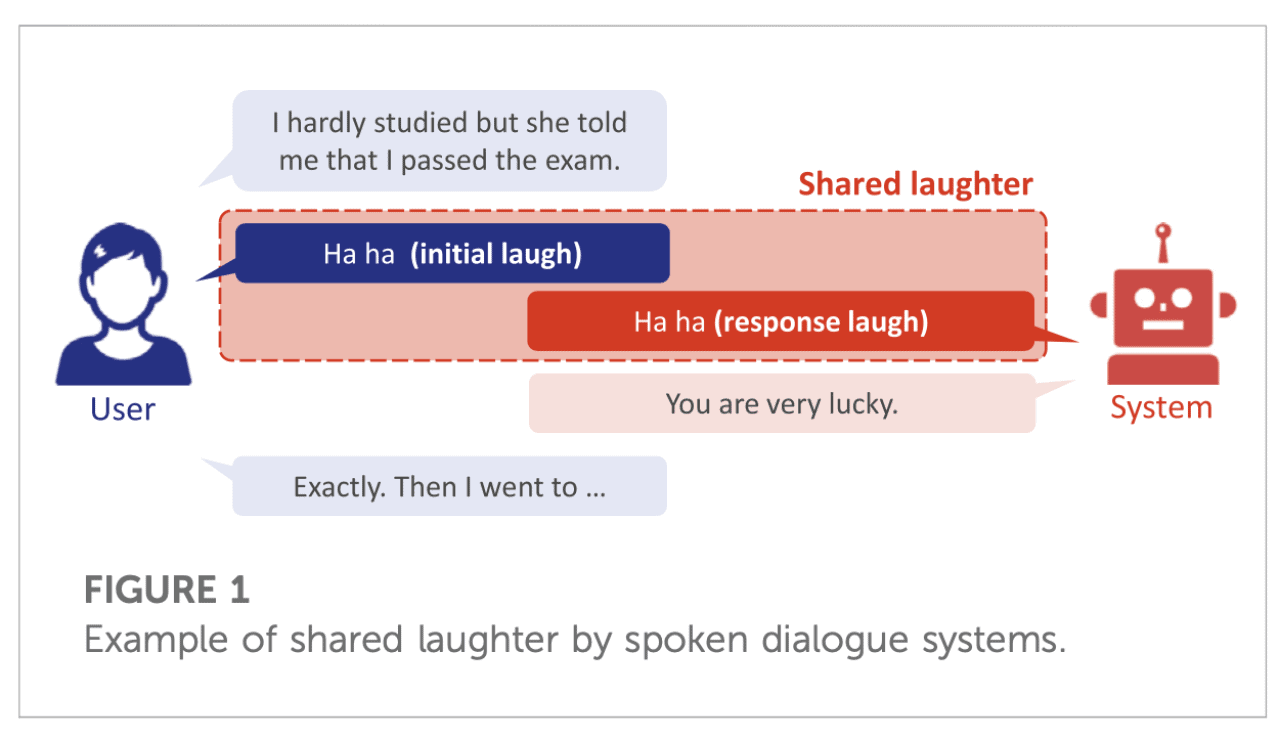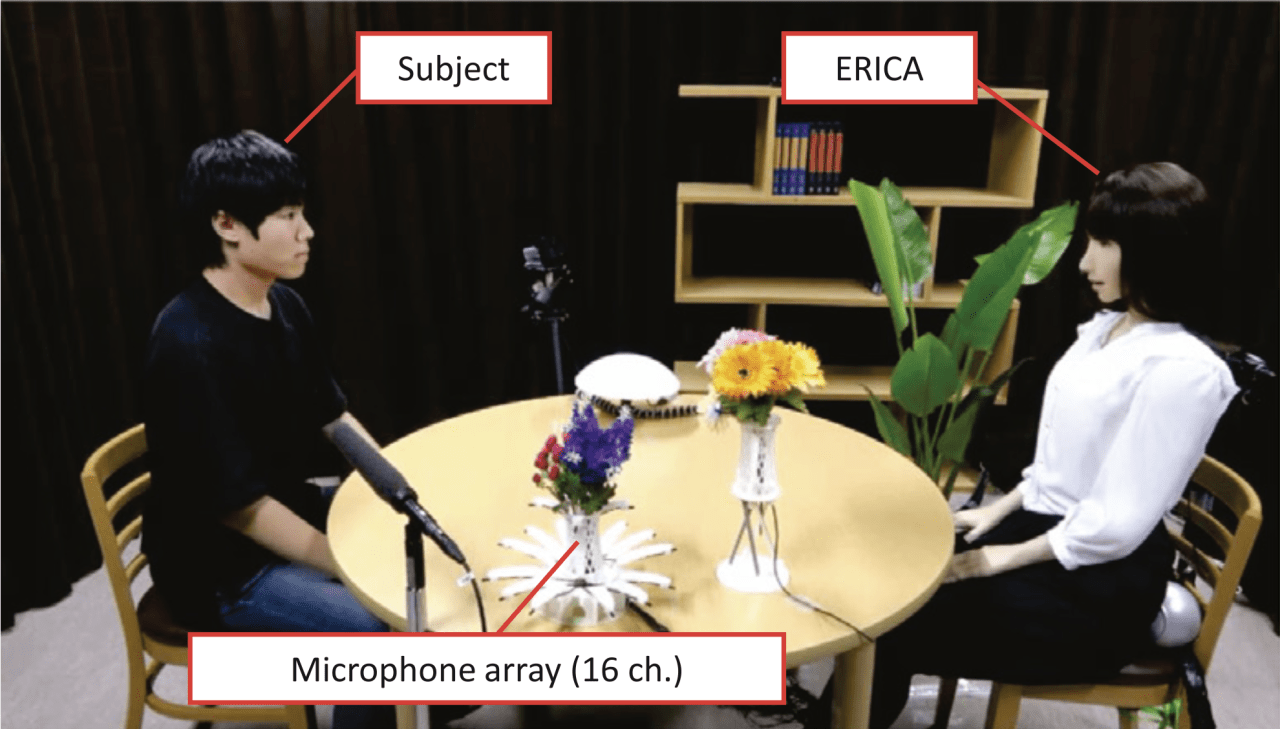A robot in Japan has been taught how to sometimes appropriately laugh in conversation with humans, and to differentiate laughter from other noises a person might make, in research that could have connotations for interactions with companion and sex robots.
Researchers at Kyoto University published their findings in the journal Frontiers in Robotics and AI, reporting that by working with laughter types with the artificial intelligence (AI) of their robot ERICA, they were fairly successful in teaching it how to respond to different types of laughter.
The scientists trained ERICA by having the robot listen to conversations featuring various styles of laughter, with its AI system having some success in learning how to appropriately respond or mimic it with its own style of laughter.

Programming a robot’s AI response to laughter and other similar sounds can be tough, as the tone of conversations are often set by subtle social cues and interactions. Developing a sophisticated AI that deals well with laughter and similar sounds would be a significant step forward in terms of companion robot potential.
“Situated conversation presents issues such as incorrect speech recognition, prosody, and timing that may complicate a system’s ability to respond adequately to a joke in real-time,” The researchers wrote.
“Furthermore, the type of laughter used as a reaction to a stimulus can influence the atmosphere of a conversation. For example, a user who describes an unfortunate event they experienced may be satisfied with a sympathetic chuckle, but a cheerful laugh would be inappropriate and could make the user feel embarrassed,” they added.
The researchers developed a “shared laughter” model to train ERICA’s AI, involving it hearing a series of short conversations including laughter.

They found that the system “improved the impression of the dialogue system such as empathy perception compared to a naive baseline without laughter and a reactive system that always responded with only social laughs.”
Despite the positive results, don’t expect sex robots with deep empathy levels who can laugh appropriately on cue to hit the shelves quite yet.
Dr Koji Inoue, working with the research team, said: “Robots should actually have a distinct character, and we think that they can show this through their conversational behaviors… we do not think this is an easy problem at all, and it may well take more than 10 to 20 years before we can finally have a casual chat with a robot like we would with a friend.”
Read next: Biohybrid finger beckons self-healing ‘living skin’ for sex robots






Leave a Reply